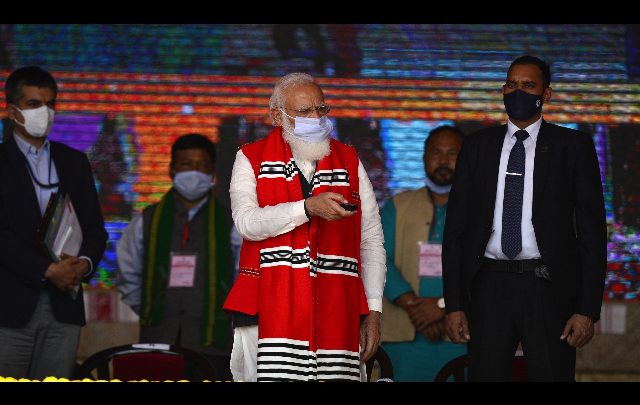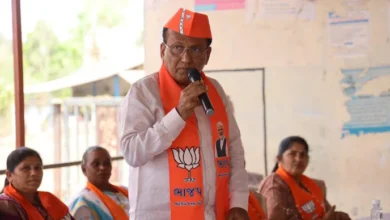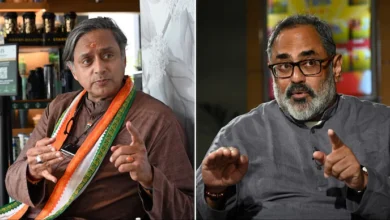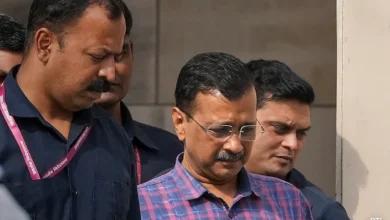

After US-based ‘watchdog’ Freedom House released an annual report downgrading India’s freedom status to ‘Partly Free’ with a score of 67, the Centre has now issued a point-by-point rebuttal to its claims calling the report ‘misleading, incorrect, and misplaced’.
The report had judged India on its understanding of political rights and civil liberties in the country. Reflecting a bias towards minorities and anti-India entities, it repeatedly discussed the alleged discrimination suffered by Muslims in India, pointed towards arrests of activists and journalists, and action taken against some NGOs in the country.
Calling the Central Government “Hindu nationalist”, it said that “the Government and its allies have presided over rising violence and discriminatory policies affecting the Muslim population and pursued a crackdown on expressions of dissent”.
The government, however, in its statement defended India’s freedom record, pointing to the fact that many states are ruled by parties other than the one at the national level, chosen through an election process that is free and fair and conducted by an independent election body. This, it said, reflects the working of a vibrant democracy, which gives space to those who hold varying views.
On Lockdown and the Migrant Crisis:
The Government asserted its complete responsibility in making sure that people do not face undue distress in the time of an inevitable lockdown to counter and control the Covid-19 pandemic in the country.
It listed measures taken to address the migrant crisis post-lockdown, including allowing them to engage in activities outside containment zones, allowing States to use State Disaster Response Fund, announcing relief package worth Rs. 1.7 Lakh Crores, providing ration free of cost to the poor, and increasing daily wages of laborers.
On the alleged Discrimination and Discriminatory Policies against Muslims:
The government said that the Centre treats all citizens equally as enshrined under the Indian Constitution and that all laws are applicable without any discrimination. Due process of law is followed in issues relating to law and order- irrespective of the alleged instigator’s identity.
It also defended the handling of the Delhi riots that broke out last year over the Citizenship Amendment Act, asserting that the law enforcement machinery acted quickly and in an impartial and fair manner. Appropriate actions were taken to control the situation.
It is worth noting that the allegedly discriminatory law against Muslims – CAA does not affect the citizenship status of Indians, whether Hindus or Muslims in any way and is meant for persecuted minorities from neighboring Islamic nations to avail Indian citizenship.
Also, as per the Delhi Police Special Cell’s report on the anti-CAA Delhi Riots, it was a pre-planned conspiracy hatched and planned out from December 2019 to February 2020. Among the notable people who led the riots were Umar Khalid, Khalid Saifi, Sharjeel Imam, and his ilk.
On use of Sedition Law to against ‘Critics and Activists’:
The government reiterated that the responsibility of maintaining law and order including registration and investigation of crimes rests primarily with the concerned State Governments which take adequate measures to preserve public order.
It is also interesting to note that the report appears to disapprove of the Supreme Court’s verdict on cases that do not match the body’s pre-conceived notions of it. The ‘students and activists’ who have been part of inciting rampant violence in the country in the so-called protests against laws have after all been put in custody only because of the court of law, after due review of the evidence filed against them.
If the body’s stand on the anti-CAA riots and ‘protests’ across the country aren’t enough to reflect its prejudice against the country’s sovereignty, it also lists a separate Indian Kashmir – which it says had enjoyed “substantial autonomy until it the abrogation of Article 370 which put it under direct control of the Indian Government”. It claimed that this “stripped residents off their political rights and curtailed civil liberties” and also went on to accuse the Indian Security Forces of human rights violations against the people of Kashmir.
The body has also been linked to billionaire George Soros, who has on various occasions been vocal about his criticism of India, especially on the Government’s alleged “punitive measures on Kashmir, and depriving Muslims of their citizenship”, which is once again misinformation to feed the narrative. Soros’s Open Society Foundation explicitly lists the Freedom House as its ally, which is partaken through “support and sharing of costs”.
Due analysis of the report clearly reveals that the Freedom House’s grading of India is based on a fallacious narrative built by the left ideology, that recognizes the freedom and human rights of the aggressors and not the actual victims. A similar approach has also constantly been used by various ‘independent’ bodies and media houses including the likes of the New York Times and Washington Post, that pick and choose to speak on issues that fit in with a narrative that incites global sympathy while shielding what actually goes on on-ground.
What’s concerning is that the ‘grading’ by this international body was able to churn headlines and people’s sentiments merely by the ‘partly-free’ tag that it gave to India without them even reading and understanding the factors on which the report was prepared. This just goes on to show how easy it is for organizations like these to sugar-coat a hidden agenda and use that to turn people’s anger against the Government into anger against the country.



